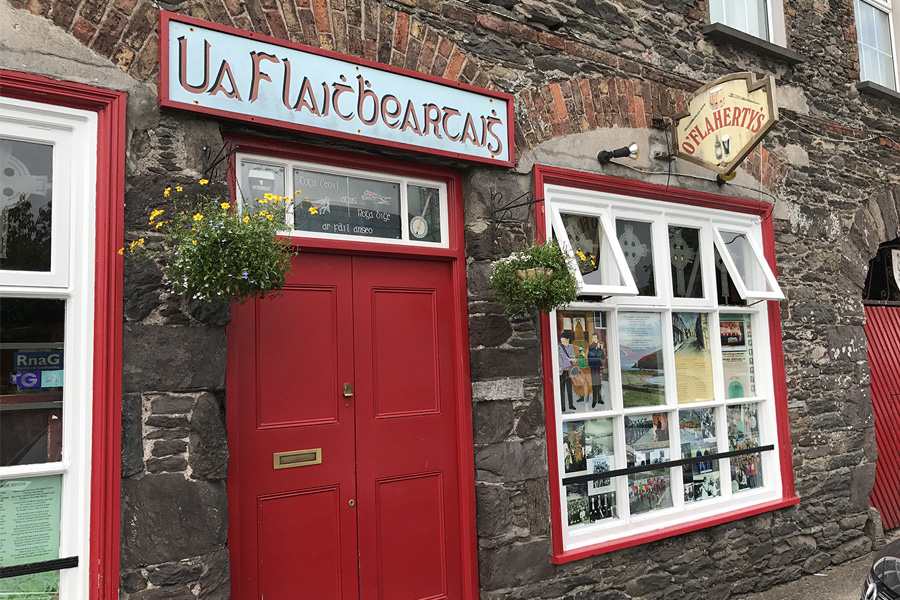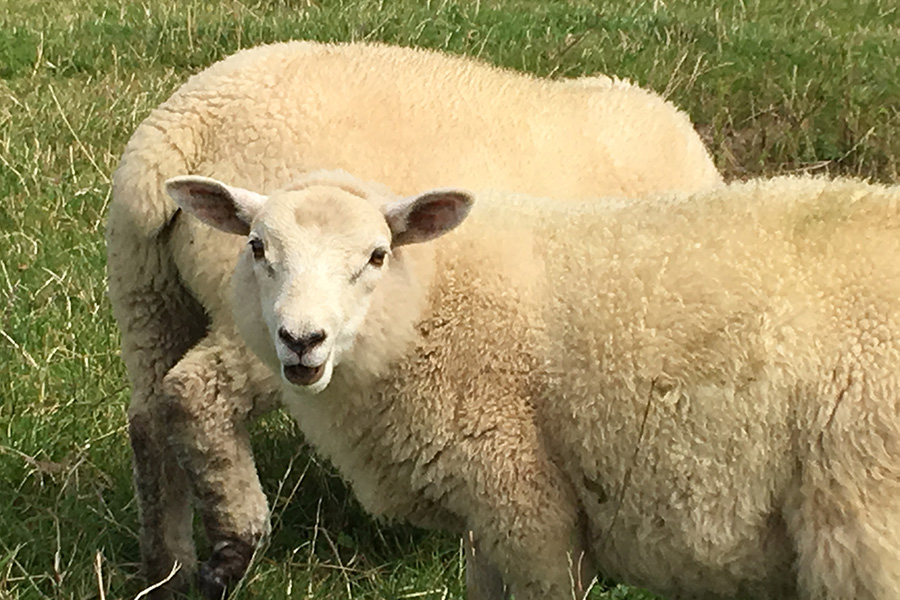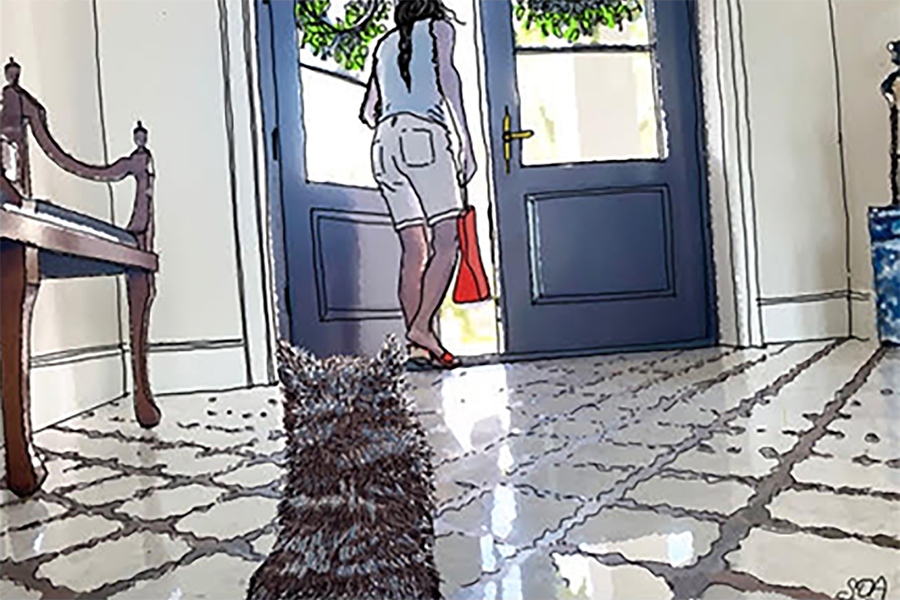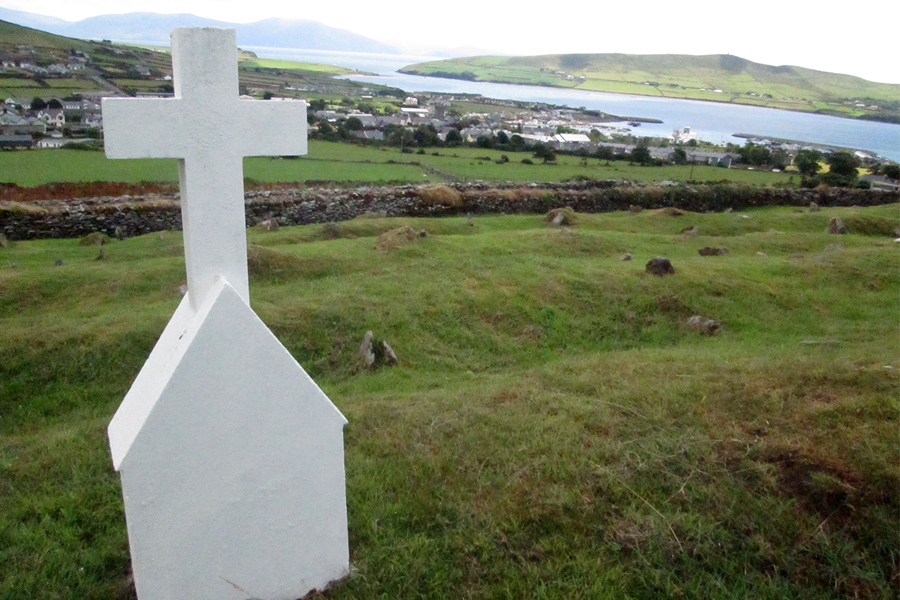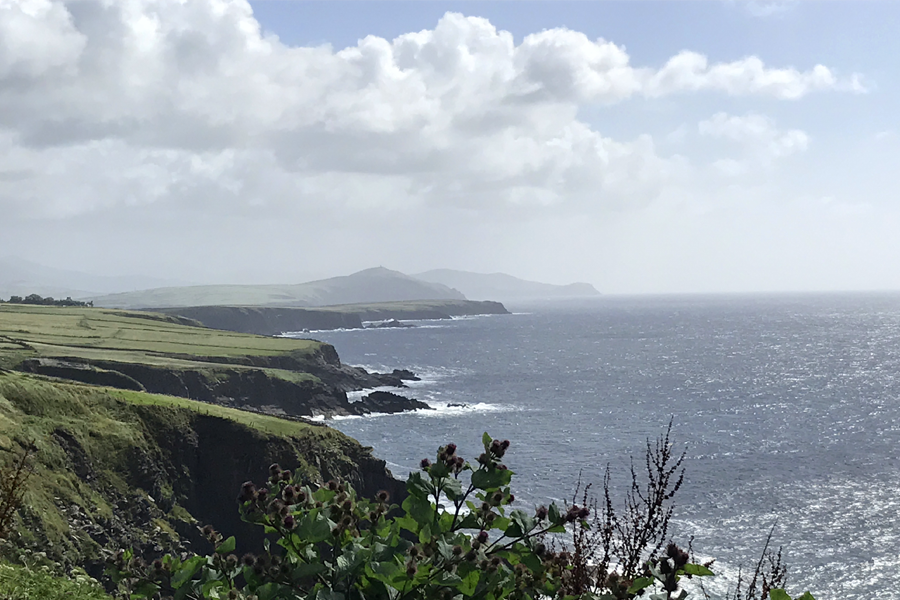Emerald Blog: A Second Love

Every summer, Bay Path University’s MFA program in Creative Nonfiction writing offers a weeklong Writing Seminar based in Dingle, a town nestled on the Atlantic coast on the western shore of County Kerry, Ireland. Each day throughout the week, Seminar Facilitator Suzanne Strempek Shea gives participants a prompt to encourage writers to investigate new ideas and topics in their writing. During August 2020, we’ll publish our Emerald Blogs to showcase the diverse work developed from responses to Suzanne’s prompts.
From Suzanne Strempek Shea
Diane Hall, MFA ’22, wrote this piece at the 2018 Summer Writing Seminar. A wealth of sensory details creates a strong picture of an afternoon encounter, and reveals why the writer might fall so hard for a stranger in a strange land. The essay sprouted from no particular prompt, but rather from the actual experience, which often is inspiration enough.
A Second Love
by Diane Hall

It was love at first sight. Coarse, titanium-yellow hair softly followed a long, elegant neckline, stopping just short of broad muscular shoulders developed from years of hard work. Immense auburn eyes, highlighted by long, delicate, midnight-black lashes, met mine in a bashful way, questioning my intentions.
He smelled of the outdoors, of dirt and grass. He was quiet and unpretentious, but he caught my attention as he nervously shifted his weight from leg to leg with what appeared to be apprehension—but also interest. I had never done anything like this before. I was feeling uncertain, questioning my decision.
As I slowly inched toward him, he didn’t back away. Though unspoken, we both felt the mountain calling us. Maya, our guide for the day, held his bridle as I awkwardly stuck my foot in the left stirrup, pulled myself up with my arms, swung my right leg over his muscular back, and balanced myself in the saddle. The swooshing of the wind was getting louder by the minute, the clouds and fog settling in for what was sure to be a mighty tempest within the hour. The air felt moist against my skin and oddly refreshing.
For the next two-and-a-half hours my horse Bob and I would bond and participate in something I had never experienced before: a horseback trek to the top of the mountain in Dingle, Ireland.
Since I’d never ridden a horse before, I wasn’t sure if I would like it or be scared, but I was determined to see it through. As Bob and I started up the mountain in a group of nine riders, all complete strangers to me, I was in awe of his strength and grace.
As expected, the rain and wind picked up, and at times the deluge hurt as rain pelted my face, coming down sideways, dripping off the brim of my helmet, soaking my glasses and making it nearly impossible to see. About halfway up the mountain, a wind seemingly out of nowhere threatened to knock me off the horse. My black Swiss bag, strapped around my shoulders, was completely soaked and my Boston Red Sox T-shirt was drenched, despite my purple L.L. Bean raincoat and the hunter-green trench coat Maya gave me to wear over it. My faded jeans were waterlogged. The absurdity of the situation made me laugh.
I took a moment to savor the experience, and I focused on the feel and sound of my surroundings. The resonance of the driving rain drumming against leather, human, animal, rocky terrain, and helmet; the cadence of Bob’s hooves tapping the ground below; and the swish of the wind growing louder by the minute somehow brought a feeling of calmness mixed with excitement. The gentle sway of my body with every step Bob took, my legs clinging to his sides as I leaned forward to help with the horse’s balance while going uphill, forced me to focus on his movements, the two of us finding a perfect rhythm together. I cherished each second and was enjoying the climb to the top—until my meditation came to an abrupt halt.
I was third in the line of riders. A coffee-colored horse with a jet-black mane in front of me stumbled on the slippery rocks and mud. Both horse and rider caught themselves, but the sound of the horse’s back right hoof scraping against the rain-soaked rock sounded like fingernails on a chalkboard. The inherent danger of the situation set in.
My mind raced. What if Bob was frightened by a small critter scurrying out from under a bush and he rose up on his back legs, sending me tumbling to the ground? What if he bucked me off because he got sick of hauling me up this mountain in the pouring rain?
I looked back down the mountain over my right shoulder and realized how far up we had come. Though I couldn’t see the sparsely populated town or Dingle Bay through the fog, I could see the angle at which the riders behind me were climbing. I became nervous, feeling any mistake could result in serious injury.
Though I was unsettled, I put those thoughts out of mind because I felt surprisingly confident with my horse. Bob never complained and never faltered. He seemed to enjoy every moment on the mountain with me. He strutted like he owned the place, and his air of confidence was comforting. He picked the paths of least resistance and navigated slippery rocks like an expert, carefully stepping over holes, dancing around short bushes and plodding through thick mud. I was in love with this horse for his beauty, kindness, gentleness, and most of all, for being my companion and guardian on that cool and rainy summer day in August 2018.
When we arrived at the top of the mountain after over an hour of climbing, I felt triumphant. Though the view of the Hobbit-like town below was nonexistent because we were standing in the midst of a low-lying cloud, the whiteness of the mist complemented Bob’s creamy white coat and created a mystical ambience. The roughness of the weather enhanced the ruggedness of the terrain.
The bond I formed with Bob was instantaneous. We were two strangers who learned to trust and love unconditionally. The plainness of his name spoke to his humbleness. After all, who names a horse Bob? I expected some fancy nonsensical name, the kind horses often have.
I guess it was meant to be though, because Bob also happens to be my husband’s name.
What are the chances I would fall in love with two guys named Bob during my lifetime?
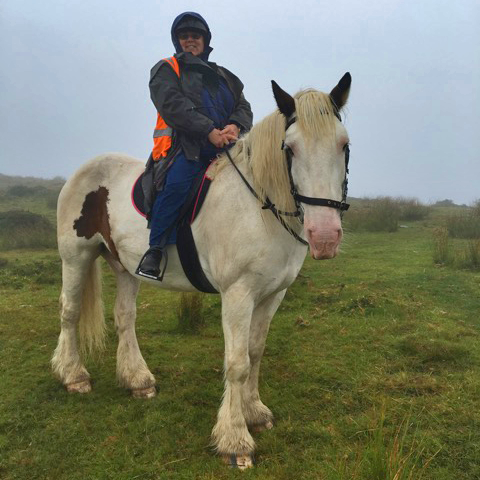
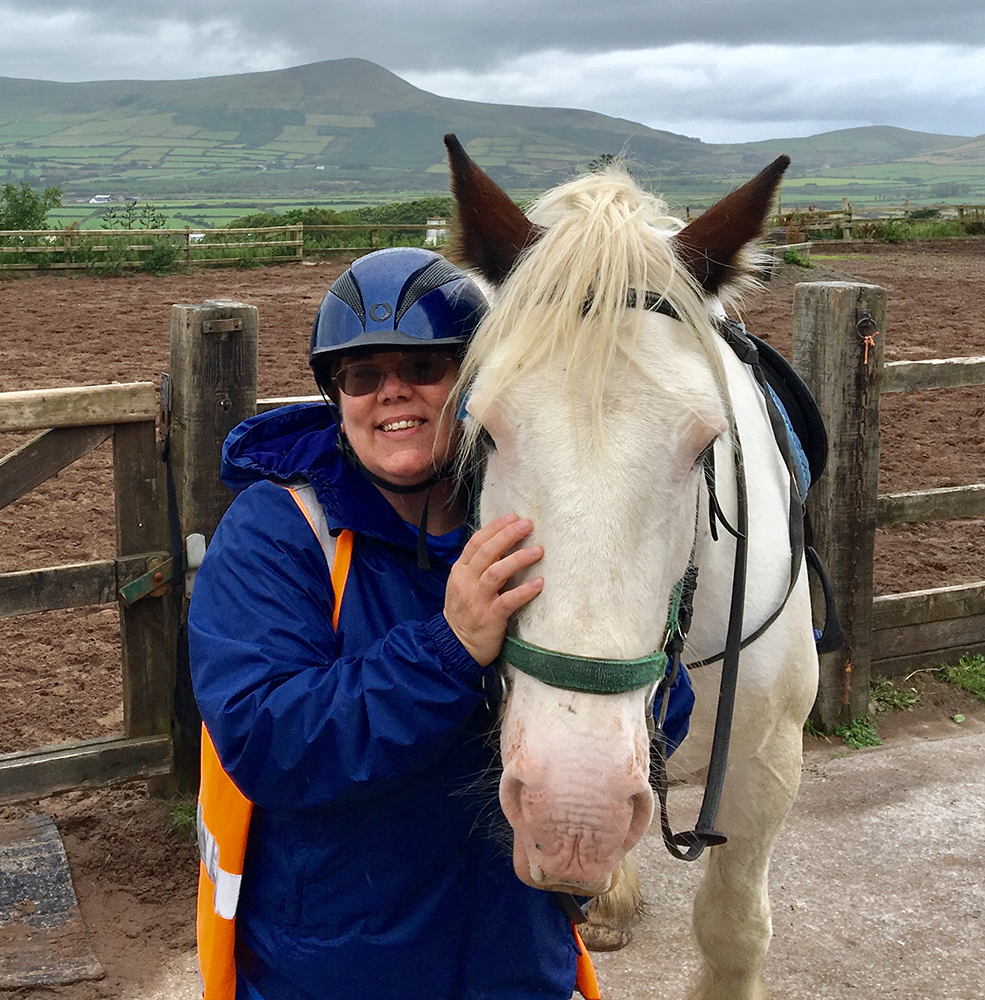
About the Writer
As a full-time professor of psychology at Bay Path University, Diane Hall teaches undergraduate and graduate courses in forensic and clinical psychology. For over a decade she has conducted a book club with adjudicated incarcerated youth and her students, and is the co-founder of the RISE-UP program, an integrated learning experience with Bay Path University students and incarcerated women at the Western MA Recovery and Wellness Center to provide students with an opportunity to gain experience while contributing to the community through service learning. After receiving her doctorate degree in Educational Psychology, she decided to pursue her passion for writing and is working towards the completion of her MFA in Creative Non-fiction Writing at Bay Path University. She participated in the Summer Writing Seminar in Dingle, Ireland in 2018 and 2019.
Write with us in Dingle next year, July 31 to Aug. 8, 2021. Contact sshea@baypath.edu for full information.
We welcome submissions to Multiplicity Blog (nonfiction prose of 1,000 words or fewer, poetry, and photography) all year. We also accept submissions of longer nonfiction works (up to 5,000 words), poetry or photography for the Fall 2020 issue of Multiplicity Magazine: At Work. Magazine submissions close on September 25, 2020. More details here.
